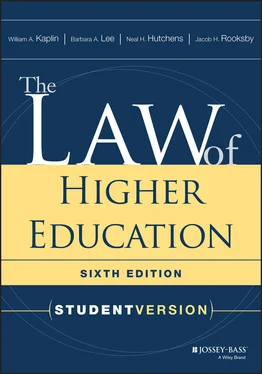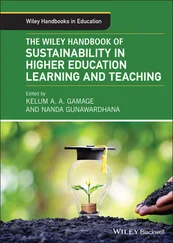Other courts have applied a more expansive set of factors known variously as the “ Urbano factors,” the “ Blake factors,” or, more recently, the “ Fitchik factors,” to credit the cases from which they derived. (See, e.g., Urbano v. Board of Managers of New Jersey State Prison , 415 F.2d 247, 250–51 (3d Cir. 1969).) In Hall v. Medical College of Ohio at Toledo , 742 F.2d 299 (6th Cir. 1984), for example, a student who had been dismissed from medical school alleged racial discrimination. The district court granted immunity to the college, looking generally to the extent of the college's functional autonomy and fiscal independence. The appellate court affirmed the district court's ruling that the school was an “arm of the state” entitled to Eleventh Amendment immunity, but it emphasized that the nine-part Urbano/Blake test “is the better approach for examining the ‘peculiar circumstances’ of the different colleges and universities.” Similarly, the court in Skehan v. State System of Higher Education , 815 F.2d 244 (3d Cir. 1987), used the Urbano/Blake test to determine that the defendant State System “is, effectively, a state agency and therefore entitled to the protection of the eleventh amendment.”
In contrast, the court in Kovats v. Rutgers, The State University , 822 F.2d 1303 (3d Cir. 1987), determined that Rutgers is not an arm of the state of New Jersey and thus is not entitled to Eleventh Amendment immunity. The case involved Section 1983 claims of faculty members who had been dismissed. Focusing on two of the Urbano - Blake factors, the court considered whether a judgment against Rutgers would be paid by Rutgers or by the state and determined that Rutgers in its discretion could pay the judgment either with segregated non-state funds or with non-state funds that were commingled with state funds. Rutgers argued that, if it paid the judgment, the state would have to increase its appropriations to the university, thus affecting the state treasury. The court held that such an appropriations increase following a judgment would be in the legislature's discretion and that “[i]f the state structures an entity in such a way that the other relevant criteria indicate it to be an arm of the state, then immunity may be retained even where damage awards are funded by the state at the state's discretion.” Then, considering the other Urbano-Blake factors, the court determined that, although Rutgers “is now, at least in part, a state-created entity which serves a state purpose with a large degree of state financing, it remains under state law an independent entity able to direct its own actions and responsible on its own for judgments resulting from those actions.”
Later cases on the Eleventh Amendment immunity of state universities have generally upheld the universities' immunity claims, continuing to rely on a variety of factors to reach this result. In Sherman v. Curators of the University of Missouri , 16 F.3d 860 (8th Cir. 1994), on remand , 871 F. Supp. 344 (W.D. Mo. 1994), for instance, the appellate court focused on two factors: the university's degree of autonomy from the state and the university's fiscal dependence on state funds as the source for payments of damage awards against the university. Applying these factors on remand, the district court ruled that the university was immune from suit under the Eleventh Amendment. In Rounds v. Oregon State Board of Higher Education , 166 F.3d 1032 (9th Cir. 1999), the court focused on two primary factors in granting immunity to the University of Oregon, looking, first, to the university's “nature as created by state law,” especially the extent to which the university is subject to the supervision of state officials or a state board of higher education; and, second, to the university functions, particularly whether the university “performs central governmental functions.” And in Bowers v. National Collegiate Athletic Association , 475 F.3d 524 (3d Cir. 2007), a case involving the University of Iowa, a court that had previously used the “ Urbano factors” applied what it now called the “ Fitchik factors.” These factors constitute a “three-part test” that “examines [these] three elements: (1) whether the payment of the judgment would come from the state; (2) what status the [university] has under state law; and (3) what degree of autonomy the [university] has” (475 F.3d at 546). Each factor is to be given equal weight. Applying the factors in “a fact-intensive review that calls for individualized determination,” the court concluded that “the first Fitchik factor weighed slightly against immunity, while the second and third factors weighed heavily in favor of immunity.” Accordingly, the court ruled that the University of Iowa came within the scope of Eleventh Amendment immunity.
When the Eleventh Amendment immunity of a community college, technical college, or junior college, rather than a state university, is at issue, courts have been more reluctant to grant immunity, since the various factors that courts use may indicate that community and junior colleges have greater institutional autonomy from the state government.
In other more recent cases, courts have also begun to make clear that a state university's Eleventh Amendment immunity may sometimes extend to other entities that the university has recognized or with which it is otherwise affiliated.
Since the Eleventh Amendment provides states and “arms of the state” with immunity only from federal court suits, it does not directly apply to Section 1983 suits in state courts. The definition of “person” may thus be the primary focus of the analysis in state court Section 1983 suits. In Will v. Michigan Department of State Police , 491 U.S. 58 (1989), the U.S. Supreme Court ruled that Section 1983 suits may be brought in state courts, but that neither the state nor state officials sued in their official capacities would be considered “persons” for purposes of such suits. In Howlett v. Rose , 496 U.S. 356 (1990), the Court reaffirmed that Section 1983 suits may be brought in state courts against other government entities (or against individuals) that are considered “persons” under Section 1983. In such cases, state law protections of sovereign immunity and other state procedural limitations on suits against the sovereign (see Felder v. Casey , 487 U.S. 131 (1988)) will not generally be available to the governmental (or individual) defendants.
In Alden v. Maine , 527 U.S. 706 (1999), however, the Court determined that, even though the Eleventh Amendment does not apply in state courts, the states do have an implied constitutional immunity from suits in state court. Thus states sued in state court under Section 1983 may now invoke an implied sovereign immunity from state court suits that would protect them much as the Eleventh Amendment immunity protects them in federal court. States may assert this immunity defense in lieu of arguing, under Will and Howlett , that they are not “persons” or may argue that, if they fall within the protection of Alden ' s implied sovereign immunity, they cannot be “persons” under Section 1983.
1 1Subsequent to the ruling of the trial court, the university moved for judgment notwithstanding the verdict, which the trial court awarded. While that ruling was on appeal, the student who had poured the substance on Furek agreed to pay all but $100 of the $30,000 compensatory damages award. Although the Delaware Supreme Court subsequently overturned the judgment for the university, and ordered a new trial on the apportionment of liability between the student and the university, it does not appear that Furek availed himself of the opportunity for a new trial, leaving the university responsible for only $100 of the damage award.
Читать дальше












